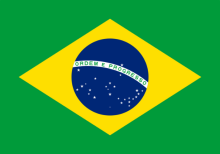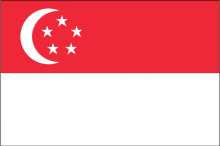
In times of crisis, whether a pandemic, war or another humanitarian threat, civil society organisations (CSOs) play a key role in delivering essential services to the wider public and protecting fundamental freedoms.
The crisis can make fundraising for CSOs harder, threatening their own existence as well as the well-being of the larger community. At the same time, beyond simply responding to more restrictive operating environments, CSOs and philanthropy support organisations can also play a proactive role in expanding the space and advocating for change during crisis, so that fundraising and philanthropy can thrive.
Policies that hinder fundraising in times of crisis
Banks blocking or delaying foreign transfers under laws and policies that aim to prevent money laundering, terrorist financing and other forms of illicit financing.
CSOs have duties of due diligence in relation to their donors, beneficiaries and partners. The scope of CSOs’ KYC (know your customer/donor) obligations include procedures to detect money laundering or disposal of the proceeds of crime. In times of crisis and stretched resources, this puts an additional burden on the CSO to absorb the cost of compliance.
Example: Thailand’s draft Act on the Operations of Not-for-Profit Organizations (NPO Bill January 2022) Section 21 of the Bill requires NPOs to report all foreign funding received to the registrar with numerous details regarding the source of the funding, the bank account, the amount received, and purposes for the disbursement of funds. Section 22 requires that detailed income and expense reports for foreign funding be prepared and made public, in violation of NPOs’ right to privacy. Because these restrictions apply, without exception or threshold, to all NPOs, they impede the right to freedom of association which embraces the ability of all NPOs to seek and secure both domestic and international resources. Such controls also run counter to Financial Action Task Force (FATF) guidelines, which call for a “proportionate” and “targeted approach” in dealing with non-profits. If adopted, this would cause challenges to raising funds from abroad to tackle humanitarian or other types of crises. It would discourage potential donors from giving if they do not wish to disclose their identities.
Challenges in receiving foreign transfers into countries where sanctions are imposed due to conflicts.
Economic sanctions are part of the current international and domestic legal climate. The sanctions impose obligations on CSOs located within the implementing jurisdiction and those outside raising funds for people, policy or planet in the impacted jurisdiction.
Example: The current sanctions in relation to the war in Ukraine affect charities, whose activities have a connection, for example, with Russia, Belarus or the occupied regions of Ukraine (Crimea, Sevastopol, Donetsk and Luhansk). Depending on the geographical scope of their activities, charities may be affected by other international sanctions.
Difficulties to open a bank account in a foreign country for CSOs from countries of conflict.
CSOs and their staff who are forced to leave their home country because of war or other types of conflict can face challenges to open a bank account abroad- such as in case of Russian and Belarusian organisations related to the war in Ukraine. There are cases of CSOs being rejected by financial institutions without any proper justification. To address this issue, the Tbilisi Principles include specific recommendations to the financial institutions.
CSO are being asset freeze targets in their own country.
Asset freezes are common financial restrictions under numerous sanction regimes. Making grants can also be affected by such restrictions, impacting both the inbound and outbound grants. In the case of outbound grants, foundations and funders as part of its “know your beneficiary” procedures, will want to ensure that the grantee is not an asset freeze target before making a grant. Asset freeze may be attached to every asset owned or controlled, directly or indirectly, by some CSOs working for human rights, peace, security and international law.
Positive development: While sanctions remain an essential and effective policy tool, they also must be carefully calibrated to help address humanitarian needs. By adopting the United Nations Security Council Resolution 2664, the U.S. Department of the Treasury’s Office of Foreign Assets Control took historic steps on 20 December 2022 , to enable the flow of legitimate humanitarian assistance supporting the basic human needs of vulnerable populations while continuing to deny resources to malicious actors.
Regulations on foreign funding limits the free flow of donations from abroad.
CSOs are impacted by the currency restrictions. Example: the US sanctions in respect of Russia prohibit the supply, from the US or by a US person, wherever located, of USD-denominated donations to CSOs in Russia, even if they are caring for the urgently needed services for refugees, vulnerable children and families, mental health issues etc.
Impact of disasters on philanthropic actors.
High net worth donors, corporate funders and, by extension, their foundations, are also affected during economic downturn or natural hazards, thus reducing the grants available for much needed services delivered through CSOs. Example: during the COVID-19 pandemic, giving declined to lower than average numbers.
Restrictions introduced to prevent the spread of a pandemic shut down CSOs’ face-to-face (F2F) fundraising.
Events such as pandemics can cause unexpected loss of certain forms of fundraising.
Positive development: The serious impact on F2F fundraising has inspired the creation of The Face to Face Hub in the United Kingdom, a network of working groups, or ‘Hubs’ that collaborate to share experience, produce guidance and develop common policy proposals. The aim is to raise the standards of face-to-face fundraising in the UK, to provide sustainability & longevity to the channel by providing the public with excellent experiences.
Inflexible allocation of funds.
During major disasters, due to the scale of the crisis and the amount of donations raised, there is an increased demand from donors for assurance that their money was reaching people in need. In such cases, CSOs are challenged by a range of factors, including a significant increase in donations, high expectations from donors, and difficulty identifying eligible recipients in some cases. How CSOs can expand their work, in both programs and locations, is determined by their governing rules and the needs of communities, regardless of donor expectations.
Example: During the 2019 and 2021 bushfires in Australia, an outpouring of generous support from the public raised more than $640 million for relief and recovery efforts. A survey undertaken by the Fundraising Institute of Australia between 16 and 19 January 2020 indicated that 53% of Australians had donated to a bushfire appeal. The survey also indicated that 88% of donors expected donations to be used within a few months. Due to the scale of the crisis and the amount of donations, there was an increased demand from donors for assurance that their money was reaching people in need.
New South Wales Rural Fire Service (NSW RFS) Trust received significant promotion online, which was initiated without NSW RFS Trust’s involvement and resulted in an extraordinarily successful social media fundraising campaign recording 1.3million donations totaling $51.2million. The campaign also raised public expectations of NSW RFS Trust’s use of the money by promoting on social media platforms activities that NSW RFS Trust could not legally deliver, a point that the public may not have understood.
"Fundraising in times of full-scale war in Ukraine has become a phenomenon as it unites so many people both in Ukraine and from all over the world to raise billions in order to support Ukraine. We have experienced that people trust and donate to big national organisations as well as local volunteer initiatives in order to bring the victory closer. One of the hardest aspects in fundraising in times of crisis is constant adaptability to new circumstances and quick responses to new challenges to create stable, relevant and effective fundraising campaigns." Ukrainian Volunteer Service
Crisis as a catalyst for fundraising
Crisis situations reveal the essential need for CSOs and their development. Collective advocacy efforts by CSOs and related stakeholders to regulators and the private sector is necessary to ensure an enabling environment for fundraising. This should include cross-sectoral collaboration, which this is especially imperative in times of crisis.
At various crises, CSOs, networks, associations and other organisations supporting donors and foundations have worked together in developing unique and successful strategies and solutions to overcome these crises. Here are some examples where the sector has taken a proactive role in expanding the space and creating new incentives for fundraising and philanthropy to thrive.
Spain
After the 2008 financial crisis, the Spanish Association of Foundations (AEF) sought to influence changes to Spain’s fiscal rules to encourage more individual giving. This effort achieved partial changes to tax law in Spain, encouraging more individual donations through tax incentives.
In 2021, foreign nonprofit entities with and without a permanent establishment in Spain that meet certain requirements can apply the special tax regime provided underact 49/2002 on patronage. Spanish individuals and companies that make donations to foreign EU non-profit entities that are taxed under Act 49/2002 (“cross-border philanthropy”) will be entitled to apply the tax incentives for patronage in their income tax (similar to cases where the donation is made to a Spanish entity).
Brasil
From mid-2014 onward, Brazil experienced a severe economic crisis. The country's Gross Domestic Product (GDP) fell by 3.5% in 2015 and 3.3% in 2016, after which a small economic recovery began. That recovery continued till it was impacted by the COVID-19 pandemic from 2020.
An education and advocacy strategy was built to support an Endowment Law that was approved in January 2019. Endowed giving has been part of the growth of philanthropy in many countries. Hence bolstering it provided a major boost to Brazil's culture of giving. The passing of a new Endowments Law has been able to strengthen incentives for giving and impact CSO’s long-term sustainability in Brazil.
Singapore
The Government and people of Singapore rallied in response to the COVID-19 crisis by supporting various causes. It put in place longer-term initiatives to guide and support charities in their digital transformation and fund-raising efforts. This aims to help charities to further their causes in the new normal, and expand their toolkit for fund-raising.
As part of its efforts to encourage digitalisation by charities, the Government of Singapore launch the Charities Go Digital effort. Government grants of up to 80%, capped at S$100,000/small & medium charities, S$50,000/large charities over 5 years to help charities with its digital infrastructure, office automation tools and software needs for operational capabilities.
Self-regulation and policies for crisis preparedness
CSOs can take pre-emptive measures by adopting relevant internal policies and set up good internal governance to be prepared for crises situation. Written policies and procedures preserve institutional knowledge and shorten the learning curve for new staff / volunteers mobilised or staff working to address the urgency of the crisis situation.
Hence fundraisers and CSO leaders may want to consider the following elements related to crisis management:
- Policies on gift acceptance, recording, and acknowledgement that ensure diversified fundraising sources to prevent drastic drop of fundraising income in times of crisis;
- Policies related to reserves and endowment for the CSO to tide through times of crisis (natural hazards/ wars/ pandemic etc.)
- Code of ethical standards and practices related to fundraising appeals, solicitations and allocation in crisis fundraising;
- Code of practice related to digital fundraising (e.g.: cookies, data collection and protection);
- Need for performance evaluation criteria for crisis fundraising, preparing adequately for shifts in fundraising methods and protecting donor rights;
- Policies to ensure cost management (cost overruns on fundraising projects is one very often faced crisis for many CSOs due to lack of internal financial policies with approval limits, contractual obligations to sponsors and approvals or licenses such as an public entertainment license at fundraising events); and
- Training and induction of fundraising staff / volunteers about critical incident reporting (e.g.: fraud, errors and omissions, noncompliance penalties).
"Though the culture of philanthropy is not developed in Armenia, donations reach a high level in crisis situations. In order to regulate these manifestations of philanthropy and put them on an institutional basis, it is very important to monitor the legal and policy environment for philanthropy, which provides an opportunity to assess the gaps in the environment. To make any phenomenon a culture, you need to work with two vectors: dissemination of best practices and development of favorable legal environment. The latter is impossible without monitoring and evidence based policy development and advocacy." Arpine Hakobyan, President, ''NGO Center'' Civil Society Development NGO
Additional resources
Fundraising in 2022 - Presentation by Mark Phillips and Amber Nathan about the impact of coronavirus on giving at the Chartered Institute of Fundraising (CIOF) National Convention in United Kingdom. (2022) Bluefrog Fundraising.
15 Tips to adapt your online fundraising while co-existing with COVID-19 blog and webinar - Fundraising tips and 'cheat sheet' created at the start of the COVID-19 crisis. (2020) Usha Menon Management Consultancy.
Fundraising in times of crisis - Practical suggestions on how supporter experience can help you navigate the pandemic. (2020) Chartered Institute of Fundraising.
Global Nonprofits Guide - Free online tool for navigating nonprofit laws around the world when CSOs are forced to move across borders or choose to expand. (2022) DLA Piper, ECNL and PILnet.
The Tbilisi Principles - Guidance for public, private and civil society sectors to balance the need to meet urgent humanitarian needs with maintaining financial integrity. (2022)


